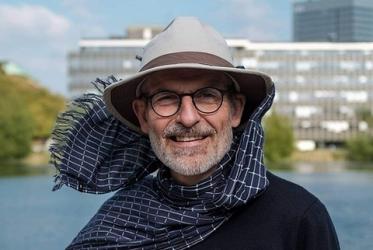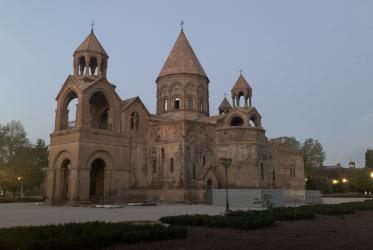Statement on the 66th anniversary of the atomic bombings of Hiroshima and Nagasaki, 6 and 9 August 1945
In spite of the atomic bombing, we survivors were able to begin to see the meaning of our survival and transcend our personal tragedies. We became convinced that no human being should ever have to repeat our experience of inhumanity, illegality, immorality and cruelty of atomic warfare.” (Setsuko Thurlow, who was a 14-year-old schoolgirl in wartime Hiroshima 66 years ago.)
Each August, with an abiding sorrow and some reasons for hope, our thoughts turn to those who suffered the annihilating atomic bombings of 1945. The witness of Mrs. Thurlow, was brought to the World Council of Churches International Ecumenical Peace Convocation in May this year. Her lifelong courage and conviction drew us into the hope at the heart of just peace. Surely the finest memorial to the half million casualties of Hiroshima and Nagasaki would be to eliminate nuclear weapons during the lifetime of the remaining survivors like her.
For as long as nuclear weapons exist, each year brings us new reasons to build a world where such a tragedy can never happen again. Last December the world saw a small step forward when the US and Russia ratified a verifiable new treaty to reduce their nuclear arsenals slightly. The past year, with a push from civil society including churches, a solid majority of governments are on record for the first time in support of a specific convention or similar agreement to ban all nuclear weapons.
Yet here in Geneva, there was backsliding and deadlock once again at the Conference on Disarmament, where 65 governments regularly gather with a mandate for such negotiations. The nine countries that have nuclear weapons – plus a few tempted to join them – continue to block progress for everyone.
Despite debt and financial crises, the nine nuclear-weapon states are also modernizing their nuclear arsenals at a rate that will cost one trillion dollars over the next decade, said a civil society study released in June. Such actions will guarantee that nuclear weapons exist indefinitely.
Again this year, on behalf of churches in the member states of NATO, the WCC, the Conference of European Churches, the National Council of Churches of Christ in the USA and the Canadian Council of Churches urged the NATO alliance to withdraw the last US nuclear weapons stationed in Europe and reduce its overall reliance on nuclear weaponry.
The Fukushima disaster in March spread radiation in the wake of devastation that destroyed cities and killed thousands of people. Churches in Japan are helping the survivors and preparing to monitor the government’s nuclear policies more closely.
The WCC peace convocation in May embraced the words of the Ecumenical Patriarch Bartholomew I when he called the churches to reflect God’s love for the world. “Our present situation is in at least two ways quite unprecedented,” Patriarch Bartholomew said. “First, never before has it been possible for one group of human beings to eradicate so many people simultaneously; second, never before has humanity been in a position to destroy so much of the planet environmentally. We are faced with radically new circumstances, which demand of us an equally radical commitment to peace.”
His words give voice to the worldwide ecumenical community: “As churches we cannot accept two threats so terrible; as members of the human family we cannot allow two dangers so great to go unanswered”.
Rev Dr Olav Fykse Tveit
World Council of Churches general secretary



